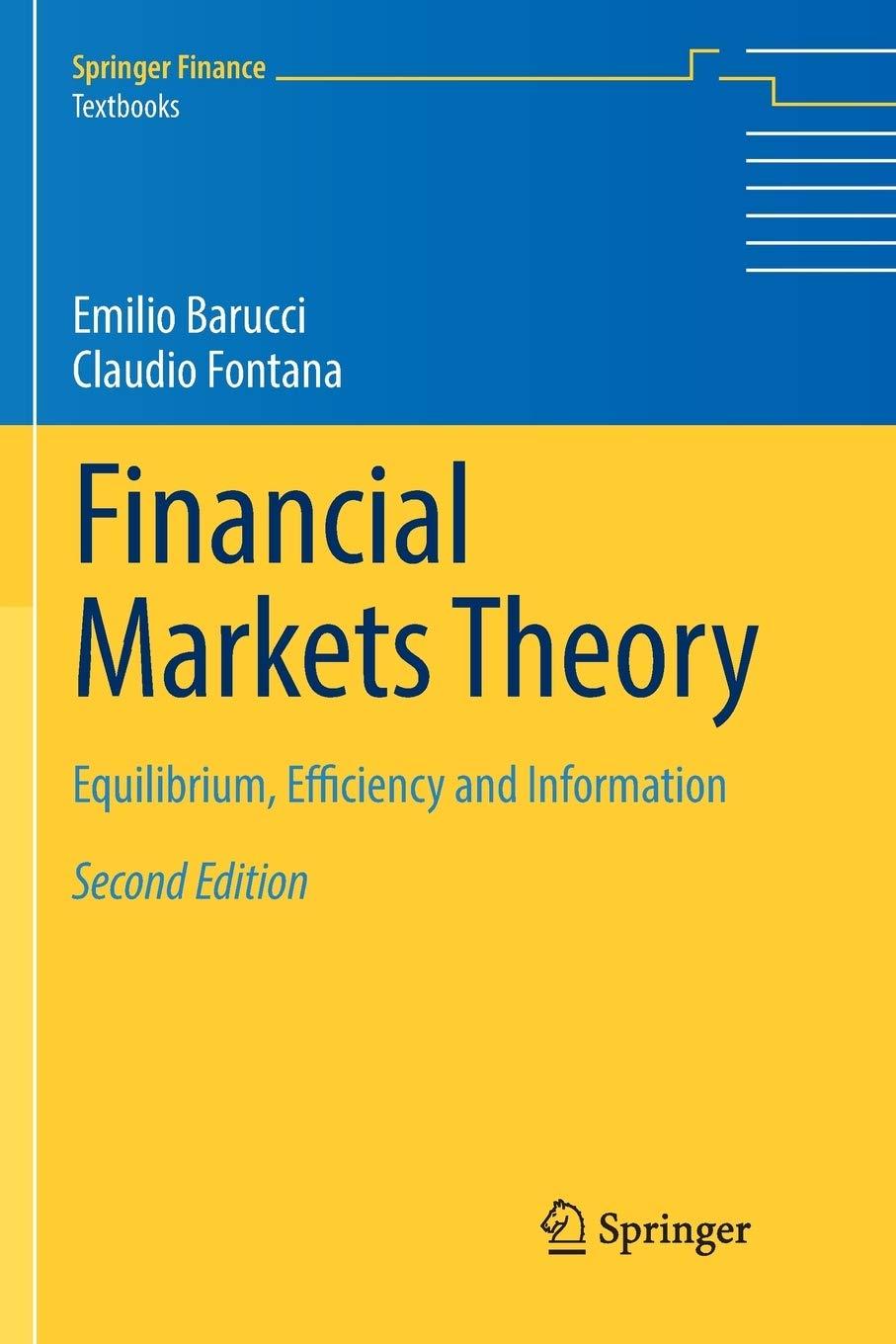For any (n=1, ldots, T), define the discounted gain process (g^{n}=) (left(g_{t}^{n} ight)_{t=1, ldots, T}) by [left.g_{t+1}^{n}=frac{1}{r_{f}^{t}}left(frac{1}{r_{f}}left(d_{t+1}^{n}+s_{t+1}^{n}
Question:
For any \(n=1, \ldots, T\), define the discounted gain process \(g^{n}=\) \(\left(g_{t}^{n}\right)_{t=1, \ldots, T}\) by
\[\left.g_{t+1}^{n}=\frac{1}{r_{f}^{t}}\left(\frac{1}{r_{f}}\left(d_{t+1}^{n}+s_{t+1}^{n}\right)-s_{t}^{n}\right)\right), \quad \text { for all } t=0,1, \ldots, T-1 .\]
Suppose that \((S, D)\) is a couple of price-dividend processes not admitting arbitrage opportunities and let \(\mathbb{P}^{*}\) be a risk neutral probability measure. Let \(\left(\theta_{t}\right)_{t=1, \ldots, T}\) be a predictable \(\mathbb{R}^{N}\)-valued stochastic process. Show that, for every \(t=1, \ldots, T\), it holds that
\[\mathbb{E}^{*}\left[\sum_{n=1}^{N} \theta_{t}^{n} g_{t}^{n} \mid \mathscr{F}_{t-1}\right]=0\]
and, as a consequence,
\[\sum_{t=1}^{T} \sum_{n=1}^{N} \mathbb{E}^{*}\left[\theta_{t}^{n} g_{t}^{n}\right]=0\]
i.e., the cumulative expected discounted gains of any trading strategy are null under a risk neutral probability measure.
Step by Step Answer:

Financial Markets Theory Equilibrium Efficiency And Information
ISBN: 9781447174042
2nd Edition
Authors: Emilio Barucci, Claudio Fontana





